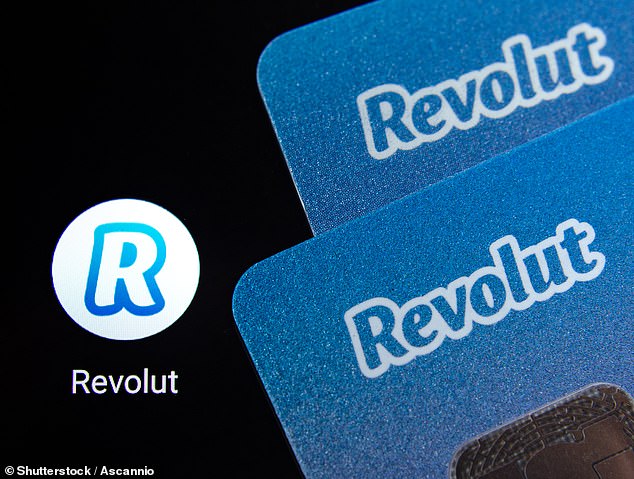Table of Contents
The road to obtaining a UK banking license for Revolut has been long and winding, but if it is serious about challenging the incumbents in Britain and around the world, licenses in Lithuania and Mexico were never going to be enough.
Fintech is one of many areas where the UK has a competitive advantage. It was going to take time for companies such as cash transfer group Wise, Monzo and online asset manager Nutmeg to pass the regulators’ test.
The arrival of a new generation of ingenious and intuitive systems that can only be improved by AI is worth applauding.
Demonstrates the room for innovation in finance.
A new bank: Revolut had a hard time getting a banking license in the UK, but now it finally got it
Newcomers can stand out by offering options and levels of service that established traditional banks struggle with.
This week I tuned into a live broadcast of BBC’s ‘Money Box’, where a former employee of one of the big four banks found herself in a dilemma over the release of funds under powers of attorney.
She was faced with ignorance from branch staff, the need to travel 22 kilometres to the nearest branch and an incorrect instruction to contact head office. The problem was only resolved when she mentioned that she was a former staff member.
Anyone who has any dealings with traditional banks will recognise that customer support and range of services have plummeted. Revolut, with additional offerings such as online subscription management, breaks the mould.
The road to being able to offer banking services such as deposit-taking (backed by insurance) and mortgages has been a difficult one, rightly so, because of auditing and systems problems. The way is paving for a multi-billion pound initial public offering, potentially worth £30bn.
Serendipity meant that Revolut’s licensing came on the same day that Lloyds Banking Group, Britain’s largest mortgage lender, was reporting disappointing results.
Profits picked up in the second quarter thanks to a recovery in the mortgage market and a decline in windfalls from high interest rates. This may be positive for established banks, given Chancellor Rachel Reeves’ hunt for revenue as the Treasury completes its fiscal review amid hype about the worst economic situation since World War II.
The encouraging aspect of Lloyds’ quarter is the reduction in provisions from £419m in the three months to June last year to £44m, demonstrating renewed health in the economy.
If Lloyds is to achieve a higher valuation, then it and other traditional lenders must prove, like Revolut and other fintechs, that they are capable of providing a range of services for consumers of all ages. It is time for its boss, Charlie Nunn, to think outside the box.
Finding purpose at Unilever
Unilever is on a roll. The leading British brand has recently found itself in a sluggish position against rivals Nestlé and Procter & Gamble.
Hein Schumacher, backed by the ever-vigilant Nelson Peltz, is beginning to achieve the long-awaited transformation.
First-half figures pushed Unilever shares up 6%, while Nestlé fell 5%. It’s quite an interesting combination. In fact, Unilever has risen 25% since April. Imagine how high the shares could be if there were no discount in London.
If the original Lever Brothers were still with us, they would be pleased to know that sales of beauty, wellness and personal care products are on the rise, reflecting the company’s origins in Port Sunlight.
The Hellmann’s and Knorr food brands are still around, but the ice cream, which will be on sale or preferably on a floating stand in London by the end of 2025, is not very popular.
An extra £600m investment in promoting its biggest brands is paying off – a new dawn for a company that has finally discovered the purpose of profitable brands.
High net worth in basketball
Football’s Premier League, closely followed by cricket’s Indian Premier League, likes to consider itself the richest sporting franchise in the world. But that’s no longer the case.
A consortium of broadcasters including Sky owner Comcast has agreed a deal to show National Basketball Association matches for the next 11 years for £60bn.
Now we’re talking about real money.
DIY INVESTMENT PLATFORMS

AJ Bell

AJ Bell
Easy investment and ready-to-use portfolios

Hargreaves Lansdown

Hargreaves Lansdown
Free investment ideas and fund trading

interactive investor

interactive investor
Flat rate investing from £4.99 per month

Saxo

Saxo
Get £200 back in trading commissions

Trade 212

Trade 212
Free treatment and no commissions per account
Affiliate links: If you purchase a product This is Money may earn a commission. These offers are chosen by our editorial team as we believe they are worth highlighting. This does not affect our editorial independence.

